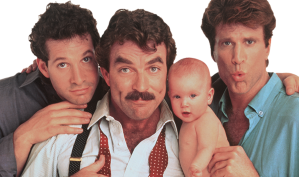Former WWE superstar Rick Bognar, better known as Fake Razor Ramon, has reportedly passed away. Bognar was a staple of the WWE in the 1990s, and has now passed at the age of 49 years old. So far, his cause of death has not been specified.
Bognar’s passing was confirmed by his brother on Saturday evening. Ken Bognar posted a note about his brother’s passing on Facebook on Saturday evening, saying that he had died on Friday, Sept. 20. The news was soon picked up by other voices in the wrestling community, who helped spread the sad word.
Videos by PopCulture.com
“It is with great sadness that I share some news with Rick’s Facebook friends. On September 20th Rick passed away suddenly and unexpectedly at the young age of 49,” he wrote. “It is tough to comprehend and will likely never sink in fully. Rick left behind a great legacy and I know he will be remembered and missed by all of us.”
Bognar performed variously under names like Rick Titan and Big Titan during his time in the ring. He took over the character of Razor Ramon from 1996 to 1997, when Scott Hall left the WWE for the WCW. According to a report by Sports Keeda, the WWE retained the rights to the character himself, so they simply reintroduced Bognar as “Fake” Razor Ramon on Raw.
Hall’s partner, Kevin Nash, moved to the WCW with him at the time, but the WWE retained the rights to his character, Diesel as well. For a time, Fake Diesel was played by wrestler Glenn Jacobs, who went on to become Kane. This weekend, Kane posted a heartfelt tribute to his former wrestling partner.
“Sorry to hear about the passing of Rick ‘Titan’ Bognar,” he tweeted. “After his wrestling career, best known for his runs in Japan, Rick became a very successful life coach and speaker, helping people work through life’s difficulties and find inner peace.”
Sorry to hear about the passing of Rick “Titan” Bognar. After his wrestling career, best known for his runs in Japan, Rick became a very successful life coach and speaker, helping people work through life’s difficulties and find inner peace. #RIP
— Kane (@KaneWWE) September 29, 2019
The experiment of recasting Razor Ramon and Diesel is considered a turning point in professional wrestling. Here, producers learned decisively that fans do not care about the characters nearly as much as the wrestlers themselves, making the performers that much more indispensable.
Bognar left the WWE after his contract expired in the late 1990s. He continued to wrestle for a time in the NJPW, but he suffered a neck injury and retired from the sport altogether before long. His last professional match was in 1999.
From there, Bognar made spiritual fulfillment his main pursuit in life. In a 2017 interview with ESPN, he explained how his time in Japan had introduced him to Buddhist philosophies and Shinto teachings. Before long, the ideas overtook his other interests, and became the focus of the rest of his life.
“At the end of it all, I was about 30 years old and I thought, ‘Jeez, what am I going to do with my life?’ I knew I wasn’t going to be able to go back [to wrestling],” he said. “Eventually I studied with a Buddhist monk for about four years, a Tibetan Buddhist monk. He taught me a lot, on meditation, on how to calm the mind, on how to de-stress.”
Bognar said that he hoped his work in that field would serve as his true legacy, not knowing that his passing was just two years away.
“I didn’t want to feel the sadness, the emptiness, the melancholy of it all anymore. It was powerful on me, and it had a huge negative effect, especially when I was on the road. [Once I pulled myself out of that], I wanted to give that gift back to people. I wanted to pass that information on — find fulfillment by seeing them grow as a human being and better their lives. I want to help people turn it around and transform, so they can have the same kind of happiness I’ve found,” he said.








